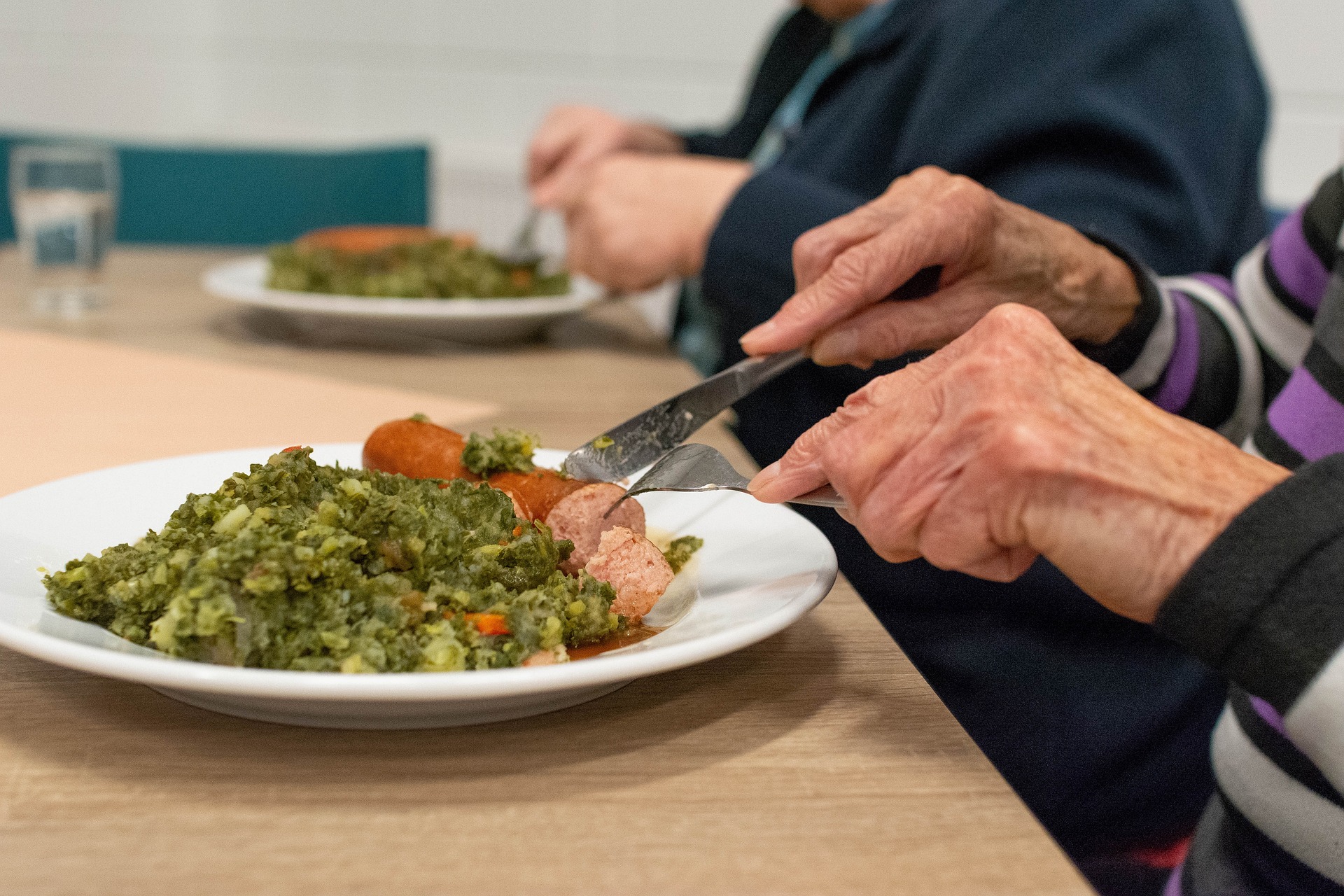
Make a complete list of all vitamins and minerals, micronutrients and macronutrients that we need, or if we refine more, a list of all the substances that we can benefit from is an impossible mission. What's more, there are substances that cannot be taken by themselves because to this day they have not yet been isolated. But many people wonder what you can eat to get everything your body needs on a daily basis.
The answer to this question is that It is not necessary that each day we get all the vitamins and minerals that we are expected to get. Now I will explain it better.
Thinking about getting every day all we need is start losing the battle. Furthermore, it is an absurd and unnecessary fight. Of course, it is necessary to meet some requirements so that at a global level we do not lack nutrients in the body, but it must be something that is obtained daily, if not in general.
So what should we eat to get vitamins and minerals?
Summarizing the theory a lot and to explain it in a simple way, we can say that we need to ingest micronutrients (vitamins and minerals), macronutrients and various bioactive molecules and that we obtain this in each meal we eat.
- Macronutrients They are carbohydrates, fats, and proteins and fats. These are substances that give us energy and calories. With each meal we eat, our body receives these macronutrients in units of tens of grams.
- Micronutrients They are molecules that we need to be able to function well but in smaller quantities, in fact we are talking about units of micrograms. With few quantities we already have enough.
- On the other hand, we find a series of substances such as fiber, which we need in order to survive and which we usually need in small doses, although in this case there will be exceptions. For example, in this section we could include anthocyanins, flavonoids, fiber, lutein, etc.

Is the Mediterranean diet a good diet to provide us with macronutrients?
We will start talking about the macronutrients, carbohydrates, proteins and fats. Normally, under normal conditions, our body has a reserve of these substances to survive even if we go a few days without eating. Even so, they are still essential for the human being. They are our source of energy, our "gasoline" for the organs of our body to function properly. If we base ourselves on the Mediterranean diet, we will see that we can get between 45 and 6% of calories from carbohydrates, between 20 and 30% from fats and between 10 and 12% from proteins.
Obviously, it is not necessary to start measuring the percentages of what we eat to be exactly these. But they do serve as a guide on what the diet we follow should contain. These are the ideal proportions. An example of a diet would be to eat carbohydrates for breakfast such as toast with jam and add a yogurt. To eat we could make a vegetable salad with egg and vegetables. It is better than not eating a lot of carbohydrates in the food because they can cause drowsiness. And for dinner we would go with a whole wheat pasta dish with sauce and tuna. It is not about looking for the exact percentages of macronutrients but the balance.
It does not mean that you have to eat this, but that you adjust it to your tastes, but respecting the balance. It's also important not to get obsessed with percentages, once you get the hang of it it's all about making combinations. But there are things that should be maintained, such as when we eat carbohydrates it is good to associate them with fats and proteins so that the glycemic impact is not so strong. In addition, in this way we prolong the feeling of satiety.
Another issue is calories, they should be seen as a whole, and not count them plate by plate and daily.
What about micronutrients (vitamins and minerals)?
However, when we talk about micronutrients or the other substances that we have mentioned, this is where we have the most problems. It is easy to remember that we have 3 macronutrients and that they must be more or less balanced with the proportions that we have said. But it is much more difficult to "calculate" the needs when we talk about such small proportions as is the case with trace elements or vitamins.

How can we get the right amounts of vitamins and minerals each day from what we eat?
This question is the most erroneous that exists in our era, we should not think like this but rather get the correct amounts in what is consumed in total, not in food units. Our body does not need us to give it every day all the minimum contributions of phytocompounds, micronutrients, vitamins and minerals. but a general equilibrium that is spread over a larger period of time.
In principle, throughout a week we do or should do some 35 meals, which results from eating 5 meals a day for a week (7 days). The distribution or obtaining of micronutrients should be done from this point of view, weekly. With all the meals we eat that week we must get the amount of micronutrients necessary for the body. Let's think for a moment, with what we eat every day, surely one day you get less amounts of a micronutrient than another day, where (by needing small amounts of these substances), we will go too far). The sum of the day that is missing and the day that is left makes the ending correct, and the body, although it is not perfect, it is designed to adapt through mechanisms of saving, storage and modulation of the amounts absorbed. In this way we have what the body needs.
General guidelines that must be followed yes or yes
Now, that doesn't mean we can eat whatever we want. There are some bases that it would be convenient for us to follow such as consuming whole grains, fruit and vegetables (of different colors) daily and that every week there are legumes in the diet at least a couple of times a week.
The key point is to eat micronutrients often in a variety of ways so that the total count is adequate. This is achieved with the continuous rotation of food. Always trying to make it as varied as possible. And even better if we make the vegetables that are known as "poor", or open our minds to "new cereals" from other cultures such as millet, oats, teff or sorghum, among others. Or include in the diet the parts of the animal that are usually thrown away, such as organs.
Basic rules that should be followed to improve food rotation:
- If we consume salt, let it be iodized salt. And the less, the better.
- Focus on consuming daily 5 servings of fruit and vegetables of different colors (each color is associated with different molecules).
- Do not always use the same cereal grains to eat, be creative, innovate, combine.
- When we talk about cereals we also refer to the pseudocereals. Quinoa, amaranth or buckwheat, for example.
- not close to new flavors. Search for new spices, seaweed, aromatic herbs, foods from other cultures...
Obviously, this will always depend on the physical qualities of the person. Intolerances, allergies or nutritional options. Vegans will not follow the same diet as omnivores. In these cases it would be a matter of adapting these points to particular needs.
In the case of Specific conditions, Let's take for example people who suffer from generalized iron deficiency anemia, it will not be difficult to remedy them. It will suffice to pay attention to simple tricks to maximize the absorption of the substance in question, in the case of iron, a source of vitamin C during the meal, which can be lemon on the meat or a garnish of raw peppers to accompany the lentils.
An exception to everything we have discussed is vitamin D, which is usually not enough with the diet. And even though we live in a country with many hours of sun, we tend to take it only in summer, making the contributions insufficient. We should get 10 minutes of sun a day throughout the year.

Is today's food not the same as it was a few years ago?
Unfortunately the answer is yes. the food we have today is not of the same quality as what our grandparents had. But we are aware of it and then we can give you a solution. One option is to choose organic fruit and vegetables, not the one from the supermarkets that come from who knows where. If we buy fish, always be wild fish. Those who consume meat should ensure that it comes from non-intensive farms and from animals that have been fed on grass.
We must also make sure Do not waste food. For example, when we make vegetables, we should not throw away the outer leaves, nor the peels from food. We must think that these parts are the ones that contain the most antioxidants and vitamins and we usually throw them away.
Wanting to get the micronutrients we need with supplements, today, is impossible. The answer is that these micronutrients found in vegetables and fruit act synergistically with dozens (or even hundreds) of substances in the food itself. The studies that are made of each of the substances are done individually, without taking into account this type of interactions and synergies.